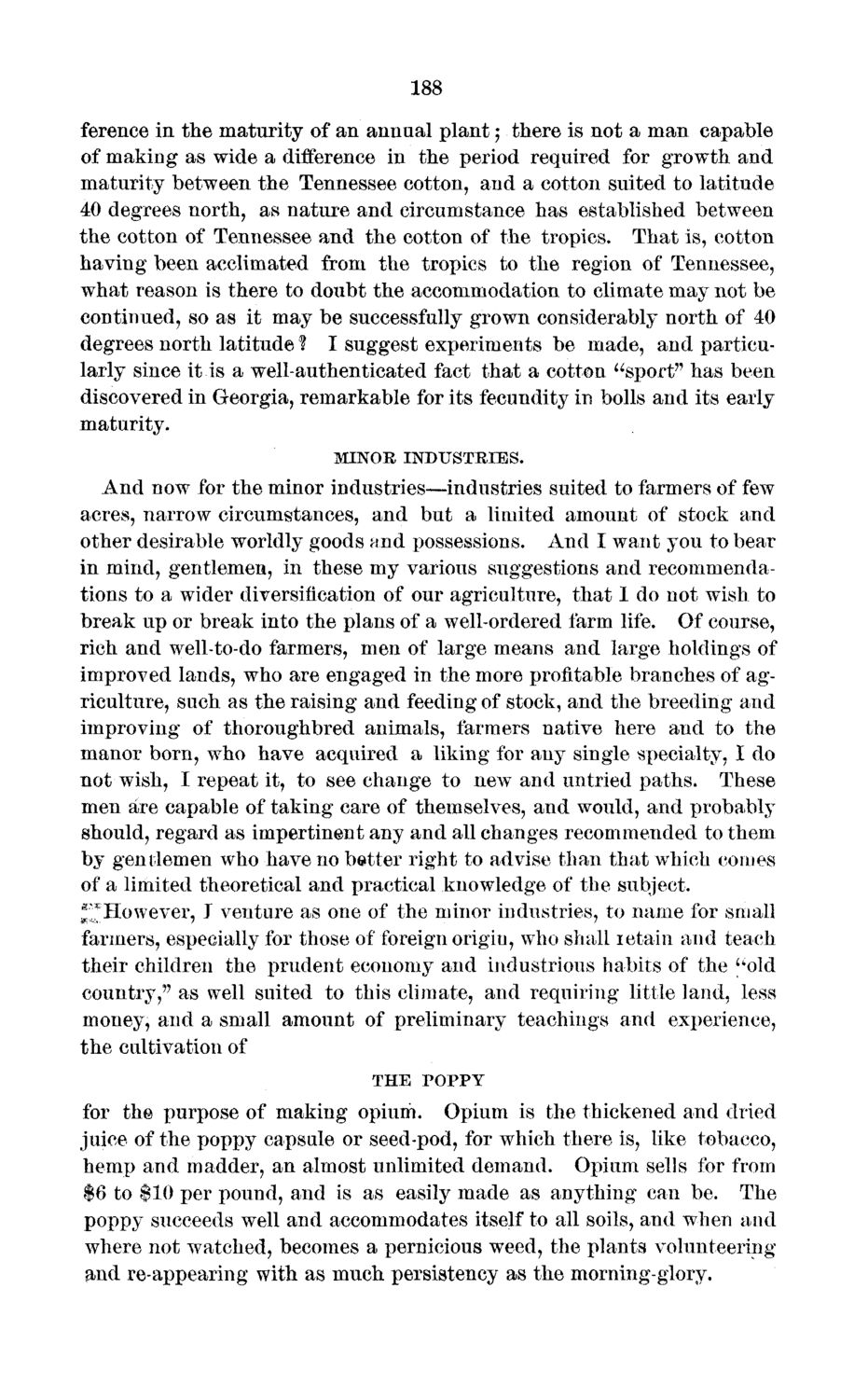| |
| |
Caption: Board of Trustees Minutes - 1873
This is a reduced-resolution page image for fast online browsing.

EXTRACTED TEXT FROM PAGE:
188 ference in the maturity of an annual plant) there is not a man capable of making as wide a difference in the period required for growth and maturity between the Tennessee cotton, and a cotton suited to latitude 40 degrees north, as nature and circumstance has established between the cotton of Tennessee and the cotton of the tropics. That is, cotton having been acclimated from the tropics to the region of Tennessee, what reason is there to doubt the accommodation to climate may not be continued, so as it may be successfully grown considerably north of 40 degrees north latitude 1 I suggest experiments be made, and particularly since it is a well-authenticated fact that a cotton "sport" has been discovered in Georgia, remarkable for its fecundity in bolls and its early maturity. MINOR INDUSTRIES. And now for the minor industries—industries suited to farmers of few acres, narrow circumstances, and but a limited amount of stock and other desirable worldly goods and possessions. And I want you to bear in mind, gentlemen, in these my various suggestions and recommendations to a wider diversification of our agriculture, that I do not wish to break up or break into the plans of a well-ordered farm life. Of course, rich and well-to-do farmers, men of large means and large holdings of improved lands, who are engaged in the more profitable branches of agriculture, such as the raising and feeding of stock, and the breeding and improving of thoroughbred animals, farmers native here and to the manor born, who have acquired a liking for any single specialty, I do not wish, I repeat it, to see change to new and untried paths. These men are capable of taking care of themselves, and would, and probably should, regard as impertinent any and all changes recommended to them by gentlemen who have no better right to advise than that which comes of a limited theoretical and practical knowledge of the subject. ^However, J venture as one of the minor industries, to name for small farmers, especially for those of foreign origiu, who shall letain and teach their children the prudent economy and industrious habits of the u old country/' as well suited to this climate, and requiring little land, less money, and a small amount of preliminary teachings and experience, the cultivation of THE POPPY for the purpose of making opium. Opium is the thickened and dried juice of the poppy capsule or seed-pod, for which there is, like tobacco, hemp and madder, an almost unlimited demand. Opium sells for from $6 to $10 per pound, and is as easily made as anything can be. The poppy succeeds well and accommodates itself to all soils, and when and where not watched, becomes a pernicious weed, the plants volunteering and re-appearing with as much persistency as the morning-glory.
| |